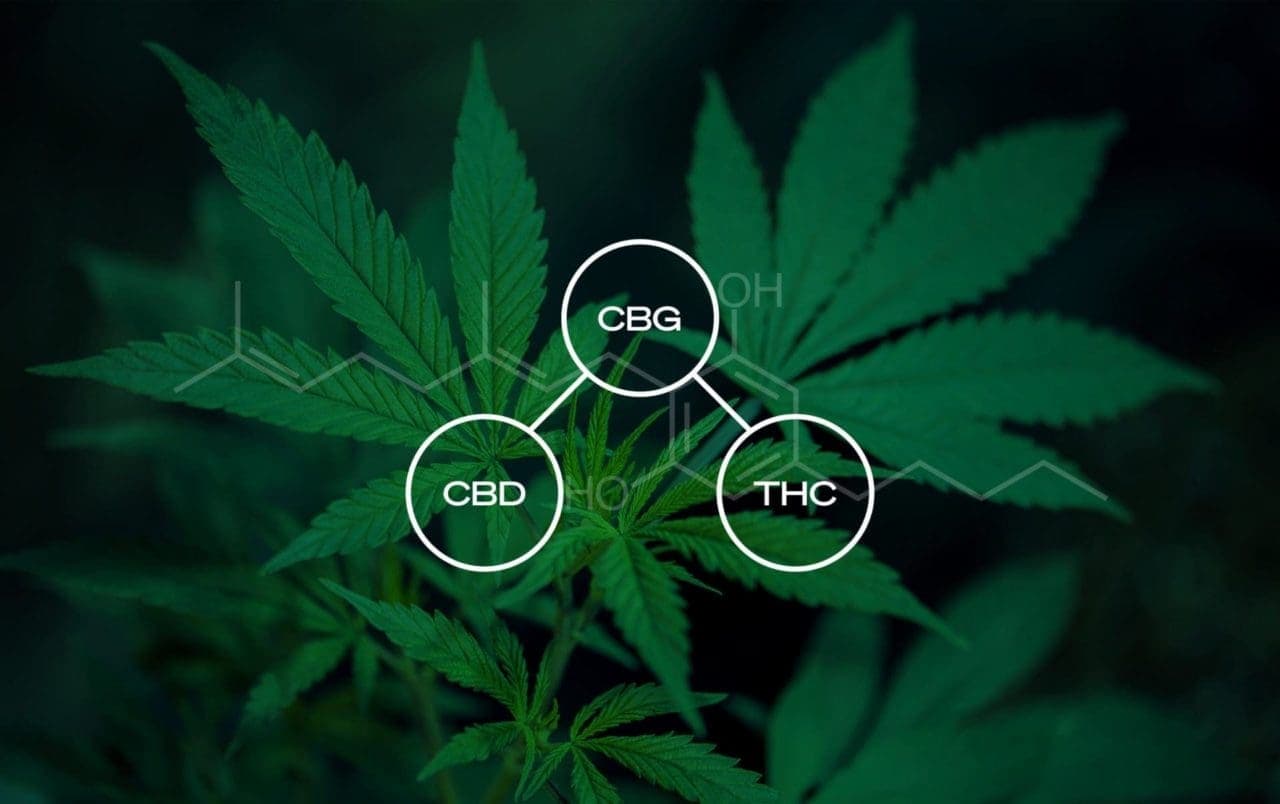Understanding CBC, a cannabinoid in cannabis

Article written by

April AcernoContent Writer
Content reviewed by

Dr. Mitchell L. DoucetteSenior Director of Research
Cannabichromene (CBC) is a type of compound called a cannabinoid. It’s found in cannabis, though in smaller amounts than other cannabinoids like tetrahydrocannabinol (THC) and cannabidiol (CBD).
Research on CBC is limited. However, some studies suggest that has some potential health benefits.
What is CBC in weed?
Cannabinoids like CBC work with your body’s endocannabinoid system. This system uses cannabinoids to help your body regulate:
- Pain tolerance
- Mood
- Sleep
- Inflammation
- Cognitive function, such as memory, focus, and motivation
Like other cannabinoids, CBC may also offer certain health benefits.
How is CBC different from other cannabinoids?
Cannabis contains over 100 unique cannabinoids. Each cannabinoid can affect you differently based on how it interacts with various receptors in your body. CBC’s potential benefits come from how it engages with these different receptors.
Cannabis contains lower concentrations of CBC in comparison to other cannabinoids like CBD and THC. Unlike THC, CBC is not intoxicating, so it won’t produce a “high.”
CBC benefits and effects
Studies on the effects of CBC are limited, but some research suggests that it may offer certain health benefits:
- Prevents chronic pain: An animal study found that CBC may help ease pain and swelling without causing intoxication like THC.
- Lowers inflammation: Studies in cells and animals show that CBC may help lower inflammation. One particular study found that CBC may be as effective at lowering inflammation as a commonly used nonsteroidal anti-inflammatory drug (NSAID).
- Eases depression: According to an animal study, CBC may help address depression symptoms more effectively than CBD.
- Reduces seizures: CBD is often used to help with seizure disorders, but findings from an animal study suggest that CBC may be just as effective at reducing the frequency and severity of seizures as CBD.
- Reduces skin cancer growth: In a cell study, CBC was found to help reduce the growth of melanoma, a serious form of skin cancer.
- Protects brain health: CBC may promote the growth of healthy brain cells.
More research, particularly in humans, is needed to confirm the health benefits of CBC.
Is CBC legal?
Some CBC products are legal, while others are not.
CBC is a naturally occurring compound in marijuana, a type of cannabis plant with higher levels of THC. Marijuana is illegal at the federal level. However, several states have legalized marijuana for medical use, recreational use, or both.
Alternatively, hemp is a type of cannabis plant that is legal for use both federally and across all 50 states. It’s a variation of cannabis that contains less than 0.3% THC by weight.
Some manufacturers extract cannabinoids from hemp to offer CBC gummies, tinctures, and other products that are legal throughout the country.
Best ways to use CBC in weed
Consider these tips if you’re interested in the potential health benefits of CBC:
- Seek out CBC-specific products: Most cannabis strains contain less than 1% of CBC. To experience this cannabinoid’s health benefits, look for products that have a concentrated extract of CBC, like a CBC tincture.
- Speak with an expert: A dispensary budtender or Leafwell provider can help guide you in finding the best CBC products and dosage amounts to suit your needs.
- Be consistent with your CBC usage: For the best results, use CBC consistently as part of your wellness routine.
The bottom line: CBC is a minor cannabinoid that may offer some health benefits
Though research on CBC’s effects is limited, some studies show that it may help with managing depression, inflammation, pain, and more.
CBC is found in trace amounts in cannabis. However, some cannabis companies offer tinctures and other products that contain higher levels of CBC. If you’re seeking high-CBC products, consider speaking with a Leafwell provider who can guide you in the right direction.
Get your medical marijuana card
Resources
- Antidepressant-like effect of delta9-tetrahydrocannabinol and other cannabinoids isolated from Cannabis sativa L. https://pubmed.ncbi.nlm.nih.gov/20332000/
- Anti-inflammatory properties of cannabichromene. https://www.sciencedirect.com/science/article/abs/pii/0024320580906311
- Cannabichromene, related phytocannabinoids, and 5‑fluoro-cannabichromene have anticonvulsant properties in a mouse model of dravet syndrome. https://www.sciencedirect.com/org/science/article/abs/pii/S194871932100339X
- Cannabidiol and minor phytocannabinoids: a preliminary study to assess their anti-melanoma, anti-melanogenic, and anti-tyrosinase properties. https://www.mdpi.com/1424-8247/16/5/648
- Effects of cannabinoids and cannabinoid-enriched cannabis extracts on TRP channels and endocannabinoid metabolic enzymes. https://pubmed.ncbi.nlm.nih.gov/21175579/
- H.R. 5485. https://www.congress.gov/bill/115th-congress/house-bill/5485
- In vitro and in vivo anti-inflammatory potential of cannabichromene isolated from hemp. https://www.mdpi.com/2223-7747/12/23/3966
- Natural cannabichromene (CBC) shows distinct scalemicity grades and enantiomeric dominance in Cannabis sativa strains. https://pmc.ncbi.nlm.nih.gov/articles/PMC10152484/
- Terpenes in Cannabis sativa — from plant genome to humans. https://www.sciencedirect.com/science/article/pii/S0168945219301190
- The effect of cannabichromene on adult neural stem/progenitor cells. https://pubmed.ncbi.nlm.nih.gov/23941747/
Frequently asked questions
Learn more about CBC with answers to common questions.


